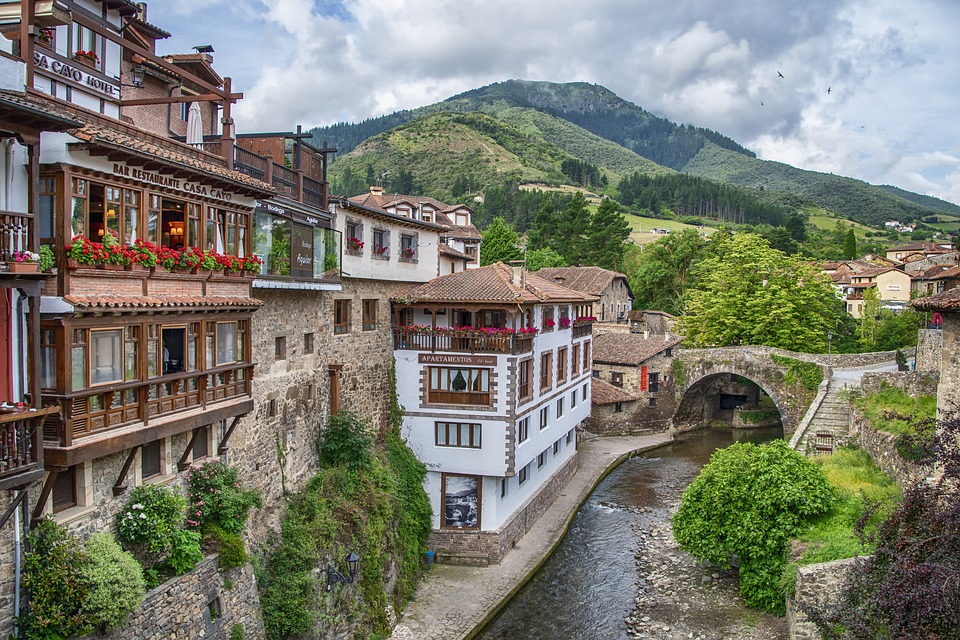Discovering the Rich History and Culture of Rural Spain
When people think of Spain, they often imagine the bustling streets of Madrid or the beautiful beaches of Barcelona. However, there is so much more to this vibrant country than its big cities and popular tourist destinations. Rural Spain, with its picturesque villages, stunning landscapes, and rich history, offers a unique and authentic experience for travelers looking to immerse themselves in traditional Spanish culture.
Exploring Traditional Villages
One of the best ways to experience the rich history and culture of rural Spain is by exploring its traditional villages. These charming settlements, with their narrow cobblestone streets, whitewashed buildings, and quaint town squares, offer a glimpse into the country’s past.
In villages like Ronda, located in the province of Malaga, visitors can wander through ancient Moorish ruins, admire centuries-old churches, and sample traditional Spanish cuisine in family-run taverns. In Segovia, a UNESCO World Heritage Site, travelers can marvel at the stunning Roman aqueduct and explore the medieval Alcazar castle.
Witnessing Age-Old Traditions
Rural Spain is also home to a number of age-old traditions that have been passed down through generations. From colorful fiestas and religious processions to traditional dances and local festivals, these customs offer a glimpse into the country’s rich cultural heritage.
One of the most well-known traditions in rural Spain is the Running of the Bulls in Pamplona, where brave souls dash through the streets alongside the charging animals during the famous San Fermin festival. Other regions, such as Galicia in the northwest, are known for their traditional Celtic music and dance performances, while Andalusia in the south is famous for its flamenco music and dance.
Exploring Historic Castles and Monasteries
Rural Spain is dotted with historic castles and monasteries that offer a fascinating look into the country’s medieval past. These ancient structures, many of which date back centuries, are often situated in stunning locations, providing breathtaking views of the surrounding landscape.
In Catalonia, visitors can explore the imposing Montserrat Monastery, perched high on a mountainside overlooking the city of Barcelona. In Extremadura, travelers can visit the medieval Castle of Trujillo, a well-preserved fortress that offers panoramic views of the countryside. And in the region of Castilla-La Mancha, visitors can tour the iconic windmills of Consuegra, made famous in Cervantes’ novel Don Quixote.
Sampling Traditional Cuisine
No visit to rural Spain would be complete without sampling its traditional cuisine. From hearty stews and fresh seafood to delectable pastries and fine wines, the country’s culinary offerings are as diverse as its landscapes.
In Asturias, known for its sprawling green pastures and rugged coastline, visitors can indulge in hearty dishes like fabada asturiana, a rich bean stew with chorizo and morcilla. In Valencia, travelers can savor paella, a flavorful rice dish cooked with seafood, meat, or vegetables, while in La Rioja, famous for its vineyards and wineries, visitors can sample world-class wines like Tempranillo and Rioja.
Enjoying Outdoor Activities
Rural Spain is a paradise for outdoor enthusiasts, with its stunning natural landscapes and wide range of activities available for visitors to enjoy. From hiking and mountain biking to horseback riding and birdwatching, there is no shortage of ways to explore the great outdoors in this beautiful country.
In the Sierra de Grazalema Natural Park in Andalusia, hikers can trek through rugged limestone mountains and lush forests, spotting rare birds like the griffon vulture along the way. In the Pyrenees Mountains in Catalonia, adventurers can raft down roaring rivers, ski on powdery slopes, or climb towering peaks with experienced guides.
Embracing Local Traditions and Festivals
One of the best ways to experience the rich history and culture of rural Spain is by taking part in local traditions and festivals. From traditional music and dance performances to religious processions and colorful street parades, these events offer a unique opportunity to immerse oneself in Spanish culture.
In villages like Alagon in Aragon, visitors can witness the colorful Jota dance, a traditional folk dance that has been performed for centuries. In Muxia, a coastal town in Galicia, travelers can participate in the ancient ritual of the Burning of the Boats, where fishing boats are set ablaze in honor of the Virgin of the Barca.
In conclusion, rural Spain offers a unique and authentic experience for travelers looking to discover the country’s rich history and culture. From exploring traditional villages and historic castles to sampling traditional cuisine and embracing local traditions, there is no shortage of ways to immerse oneself in the beauty and charm of this diverse country. Whether you’re a nature lover, history buff, or foodie, rural Spain has something to offer everyone who wants to delve deeper into the heart and soul of this enchanting land.
